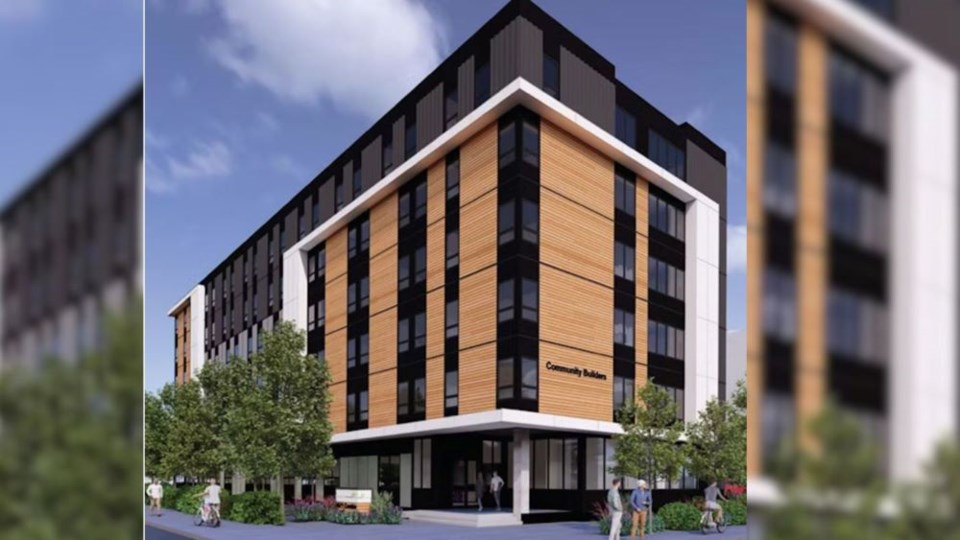Dear Editor,
Re: "Update: Richmond mayor announces ‘termination’ of Cambie and Sexsmith supportive housing"
A recent Facebook post, celebrating the cancellation of the Cambie and Sexsmith supportive housing project as a “victory for public opinion,” caught my attention and prompted reflection. This post, along with the organized petitions, lobbying and campaigns that preceded the decision, warrants a closer examination.
But is this truly a victory for everyone?
A deeper look reveals a more complex picture, one that demands a nuanced discussion about community needs, local autonomy and the ongoing struggle to address homelessness.
The Cambie and Sexsmith project proposed a six-storey building with approximately 90 supportive housing units, intended to provide stable housing and support services to individuals experiencing or at risk of homelessness in Richmond.
The project’s history—marked by initial community concerns, a pause by the provincial government in August 2024 to explore alternative locations, the subsequent decision in February 2025 to proceed at the original site, and finally, the Richmond city council’s ultimate decision to terminate the project—underscores the challenges of balancing competing interests.
The debate surrounding this project highlights a common tension: the desire for local autonomy versus the pressing need for affordable and supportive housing.
While it’s undeniable that community input is crucial for any development project, the question remains: whose voices are truly being heard? Are we prioritizing the concerns of established homeowners over the needs of vulnerable individuals experiencing or at risk of homelessness?
Can a purely local decision-making process adequately address a regional issue like homelessness, or does it risk simply shifting the problem elsewhere?
It's undeniable that a vocal group of residents opposed this project, organizing petitions and actively lobbying city council. Their actions demonstrate a strong commitment to their perspective.
The Facebook post celebrating the cancellation as a “victory for public opinion” reflects this sentiment. However, it’s equally important to ask whether this vocal minority truly represents the entire community, and whether their concerns outweigh the urgent need for supportive housing.
The most recent comprehensive data, from the 2023 Metro Vancouver Homeless Count, reported 162 individuals experiencing homelessness in Richmond—a staggering 91-per-cent increase from the 85 individuals recorded in 2020.
While we await the next official Point-in-Time Homeless Count in March 2025, the available data paints a concerning picture of a growing crisis. Even interim reports, like the 2024 Richmond Homeless Connect event highlighting a rise in homelessness among seniors, underscore the urgent need for solutions.
The arguments presented in the Facebook post, and echoed in the broader campaign against the project, focus on local control and community impact. The emphasis on “public opinion” raises the question of whose opinion is being prioritized.
Should a single community have the power to effectively veto a project that could benefit the region as a whole? How do we define “local” in the context of a regional issue like homelessness?
The post, and related commentary, also cite concerns about the project’s potential impact on the neighbourhood. While these concerns deserve consideration, it’s crucial to examine them in the context of the existing housing crisis.
Are these concerns proportionate to the urgent need for housing and support services for vulnerable individuals? How do we weigh potential impacts on property values against the very real human cost of homelessness?
While the actions of this group demonstrate a strong commitment to their perspective, it’s crucial to consider the needs of all members of the community.
It’s likely that not all residents opposed the project. There may be individuals and organizations who recognized the need for supportive housing and supported the project, but whose voices were perhaps less prominent.
The provincial government also has a vital role to play in addressing the housing crisis. While local input is essential, the province has a responsibility to consider the broader regional context and ensure that all communities contribute to solutions.
Sometimes, difficult decisions must be made to address systemic issues, even if they aren’t universally popular at the local level. The ideal scenario involves collaboration between provincial and local governments, working together to find solutions that balance community concerns with the urgent need for housing.
So, whose victory is this? The Facebook post proclaims a victory for public opinion, but is it a victory for those who desperately need housing and support?
While the cancellation may appease some residents in the short term, it does little to address the underlying issue of homelessness, which, according to available data, is on the rise in Richmond.
True victory will only come when we find a way to balance local autonomy with regional responsibility, when we prioritize compassion and understanding over NIMBYism, and when we work together to create a community where everyone has a safe and stable place to call home.
This requires a shift in our thinking, a commitment to open dialogue and a willingness to explore innovative solutions. It’s time to move beyond simply opposing projects and start working together to build a more inclusive and equitable Richmond for all.
Rev. Bill Mok, 360 Community
Richmond
📣 Got an opinion on this story or any others in Richmond? Send us a letter or email your thoughts or story tips to [email protected].
📲 To stay updated on Richmond news, sign up for our daily headline newsletter.
💬 Words missing in article? Your adblocker might be preventing hyperlinked text from appearing.



